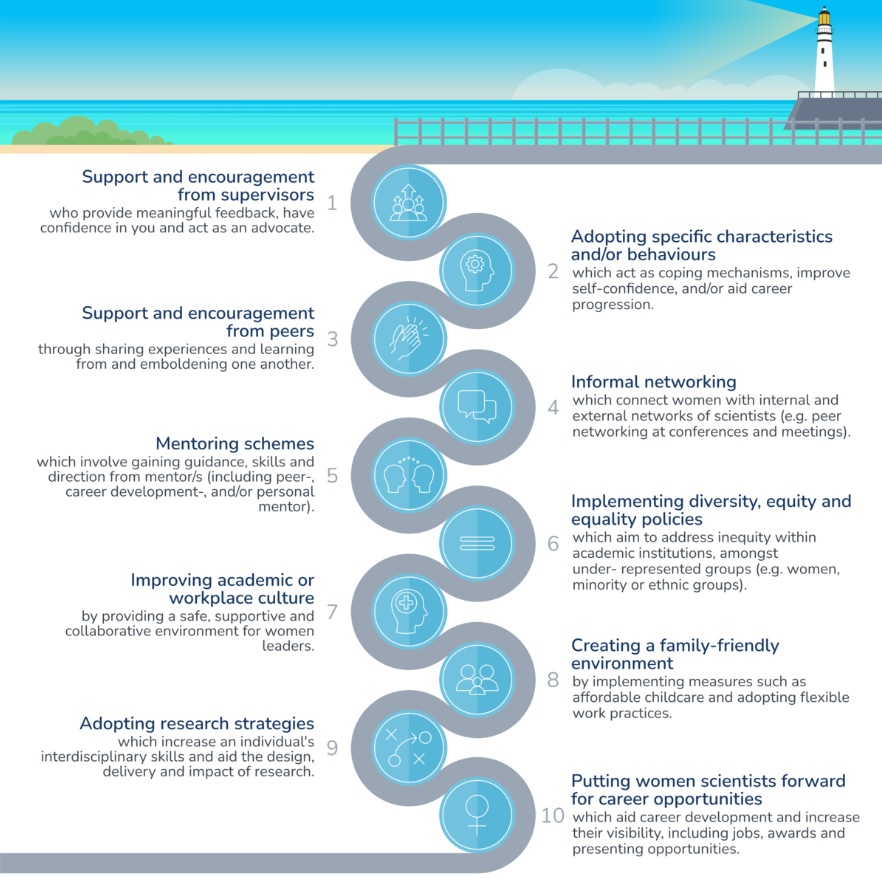Authors: Rebecca J. Shellock, Christopher Cvitanovic, Mary Mackay, Merryn C. McKinnon, Jessica Blythe, Rachel Kelly, Ingrid E. van Putten, Paris Tuohy, Megan Bailey, Alpina Begossi, Beatrice Crona, Kafayat A. Fakoya, Beatrice P. Ferreira, Alice J.G. Ferrer. Katia Frangoudes, Judith Gobin, Hong ChingGoh, Paivi Haapasaari, Britta Denise Hardesty, Vreni Häussermann, Kelly Hoareau, Anna-Katharina Hornidge, Moenieba Isaacs, Marloes Kraan, Yinji Li, Min Liu, Priscila F.M. Lopes, Marina Mlakar, Tiffany H. Morrison, Hazel A. Oxenford, Gretta T. Pecl, Jerneja Penca, Carol Robinson, Samiya Selim, Mette Skern-Mauritzen, Kumi Soejima, Doris Soto, Ana K. Spalding, Alice Vadrot, Natașa Vaidianu, Mona Webber, Mary S. Wisz
Gender equality is a fundamental human right, and it is essential for addressing ocean sustainability challenges in the 21st century. Interdisciplinarity is also critical to navigating these challenges, and evidence has shown that women leaders can increase the success of interdisciplinary marine research. However, men are more likely to be in positions of leadership within marine research institutions, indicating that the system has not been designed to adequately support women scientists. This current study highlights the nongendered and gendered challenges that affect women leader’s role, mental wellbeing, success, and career progression. We find that interdisciplinarity can present unique and additional challenges to women scientists and may exacerbate the existing gender-specific issues experienced in marine research. This is particularly the case for women who belong to minoritized and disadvantaged groups (e.g., due to their ethnicity or nationality). Accordingly, we present actionable strategies, systems, and processes that can be implemented by academic interdisciplinary marine research institutions and the scientific community to improve gender equality. This research has implications for academic marine research institutions and the science community.
Read more here
